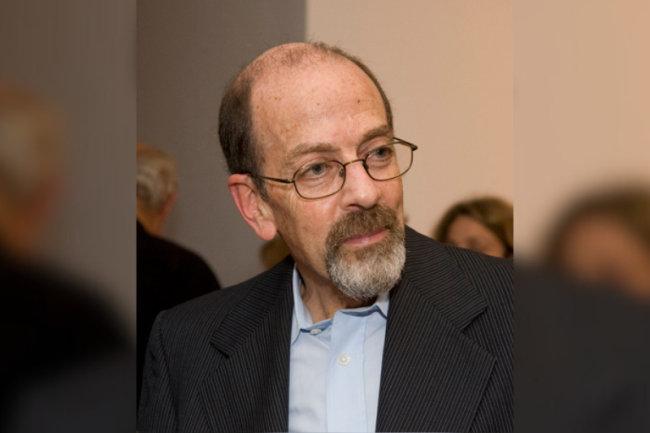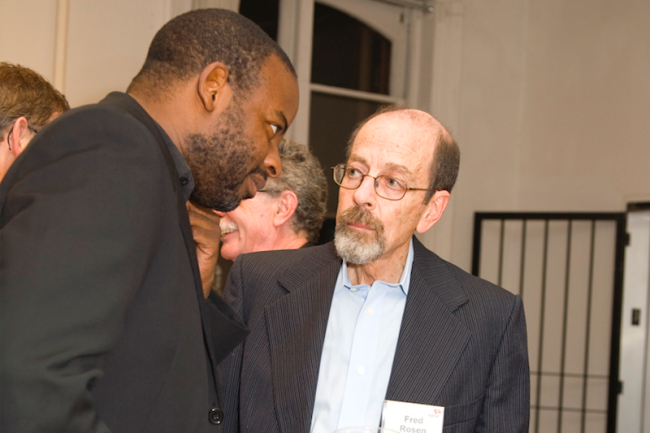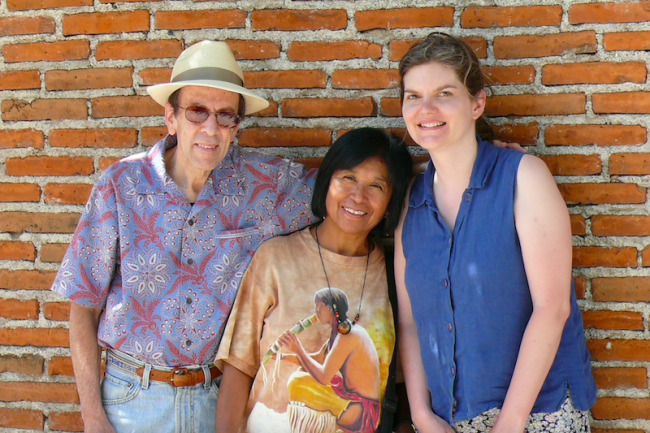
Fred Rosen, who calmly guided NACLA through the most challenging decades of its history, passed away on September 12, 2023, at age 81 in Cuernavaca, Mexico, after a long struggle with Parkinson’s disease.
A radical economist with deep roots in New York social justice work, Fred found his calling and NACLA found its guardian when he joined the organization as editor in 1992 on its 25th anniversary. Over the next 20 years, he would occupy every significant role in NACLA as he fought, with a quiet tenacity, to keep the organization afloat.
“In a period when it would not have been strange for NACLA to go out of business because there wasn’t that compelling interest in Latin America, he managed to get us through,” said Steven Volk, a professor of history emeritus at Oberlin College and the chair of NACLA’s Board of Directors from 1984 to 2000.
Fred was with NACLA through its final 10 years in the “God Box,” the Inter-Church Center at 475 Riverside Drive. He oversaw its move to smaller quarters in SoHo in 2002, two years after the dot-com bubble burst and foundation grants and large donations dried up. Although he formally stepped down as editor at the end of 2002, he stayed engaged even as he moved back and forth between New York City and Mexico. Throughout these lean years for the organization, Fred generously made his own donations and loans to NACLA, and when there wasn’t money to pay the staff or the printer, Fred stepped in to edit the magazine for free.

“Fred would always come through in a clutch moment when we needed help,” said Christy Thornton, who served as NACLA’s executive director from 2005 to 2009. “He was key to NACLA making it through to the next stage, when we moved to NYU in 2012.”
And throughout that period, thanks in large part to Fred, NACLA continued to produce incisive analysis.
Fred brought a fierce political commitment, a lived knowledge of the U.S. Left, and a belief that a deep understanding of the political and economic power structure in the hemisphere was a prerequisite to social change.
Fred had a reserved and self-effacing demeanor. He showed empathy for all the people from different currents of the U.S. Left who participated in NACLA, whether as staff, writers, editorial committee members, or board members. He would listen carefully when heated debates erupted. “It made it easier for people to hear him when he did speak, and it made it easier for arguments that came up to be calmed down,” said Volk. “He knew what was important, and he kept his eye on that.”
Fred came out of the radical pacifist wing of the antiwar movement of the 1960s and early 1970s. He occupied political spaces adjacent to the fledgling NACLA. As editor of an “underground” publication put out by the Workshop in Nonviolence (WIN) in the Hudson Valley, he visited NACLA offices in the 1970s to get the lowdown for an article he was writing on Chile. In December 1980, he took a NACLA tour to Nicaragua. After earning a PhD in economics at the New School for Social Research, Fred taught economics at the Central University of Venezuela in Caracas for two years in the late 1980s.
“As someone with one foot in academia and the other in activism, NACLA had always seemed to me a model of honest, satisfying work,” he wrote in a 35-year retrospective of NACLA’s history, published in 2002.
Fred approached each NACLA Report as an opportunity to explore a complex topic by gathering authors with different viewpoints and experiences within the Left. He believed the interplay of those voices and perspectives would yield a richer and more multifaceted understanding of the issue.
His arrival at NACLA coincided with the rise of neoliberalism, which his background as an economist made him particularly well-suited to examine. Keeping the magazine relevant to a wider readership, he also explored such topics as immigration and Latinx communities in the United States, the Black Americas, gender and sexuality, and the drug war.
NACLA, throughout its history, has served as a wide tent for activists and academics on the Left. But within that spectrum, there have been tensions between the various currents, debates about whether NACLA should take sides or have a line, and a pull toward a more polemical, in-the-moment kind of writing.
Fred steadfastly upheld NACLA’s core mission of producing deeply researched and reported articles that sought out the truth with all its contradictions and ironies. When writing in 2008 about the resilience of impunity in Mexico under the left-wing Party of the Democratic Revolution, Fred spoke explicitly about that editorial perspective: “It pains us to report on this state of affairs…From the standpoint of solidarity, NACLA hasn’t always found what it has looked for, but it has always reported what it has found.”

Fred became particularly integrated in the Mexican Left, where he was seen as “a journalist in dialogue with radical academics,” said Eric Hershberg, a professor emeritus of government and Latin American and Latino Studies at American University and the chair of the NACLA Board of Directors from 2000 to 2007.
NACLA regularly drew on Fred’s knowledge and contacts there. “When we needed a story written or a connection with someone, he was our man in Mexico,” said Thornton.
Over the years, Fred developed a wide circle of NACLA writers, from both the North and South, who were willing to contribute to the magazine for little or no compensation. “He built a whole network of people who trusted him and trusted his judgment,” said Fred Goff, a founder of NACLA and the Data Center.
Fred produced three books. He co-edited Free Trade and Economic Restructuring in Latin America (Monthly Review Press, 1995). With Hershberg, he edited Latin America After Neoliberalism: Turning the Tide in the 21st Century? (The New Press, 2007), which became a popular textbook in Latin American Studies courses. And he was the editor of Empire and Dissent: The United States and Latin America (Duke University Press, 2008), which explored the interaction of U.S. power with the dissent and resistance it engendered.

Perhaps Fred’s most significant contribution to NACLA was his nuanced and detailed account of the organization’s history on its 35th anniversary in 2002.
“The 35th anniversary essay was not only an extraordinary account about NACLA itself, but also of where NACLA fit in the trajectory of North American Left engagement in Latin America in the last third of the 20th century,” said Hershberg. “It is both a history of the Left and a history of a particular kind of journalism that came out of the student and youth movements of the 1960s.”
Goff likened Fred to a West African griot. “Fred knew the key notes of the story, had interviewed the people who lived through it, and was able to weave it all together and make a kind of foundational story that really gave the organization a sense of who it was and what had come before,” Goff said. “And it provided some guidance and wisdom on how to face the future.”
Even as he studied NACLA’s history, Fred helped build what lay ahead for the organization by appreciating the distinctive voices and perspectives of the next generation and bringing them into the NACLA fold.
Thornton remembers Fred’s willingness to be her teacher when she was a wide-eyed NACLA intern in 2002. “He was so kind to me and willing to put up with what I didn’t know and didn’t understand,” she said. “He evinced a remarkable patience that came from his belief in NACLA as an intergenerational project of learning.”
In passing the baton, Fred achieved his life’s purpose. “He had created,” said Thornton, “this community deeply in service of the world he wanted to see.”
Fred is survived by his wife Irene Ortiz, his brother Bob, his sons Jesse and Jacob, and three grandchildren.
Deidre McFadyen served as associate editor and then editor of NACLA Report on the Americas from 1991 to 1996.

